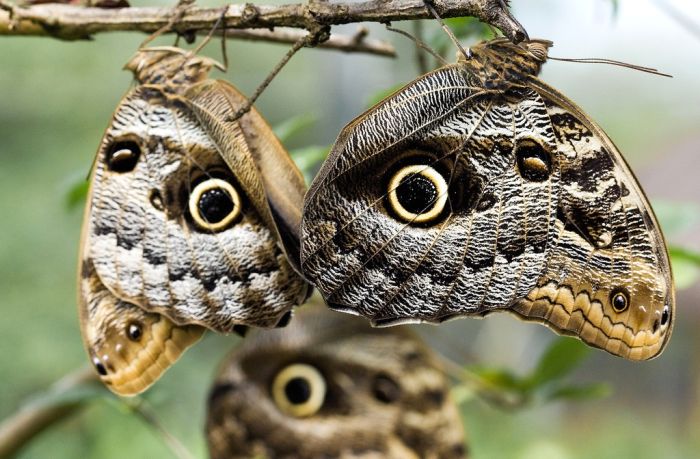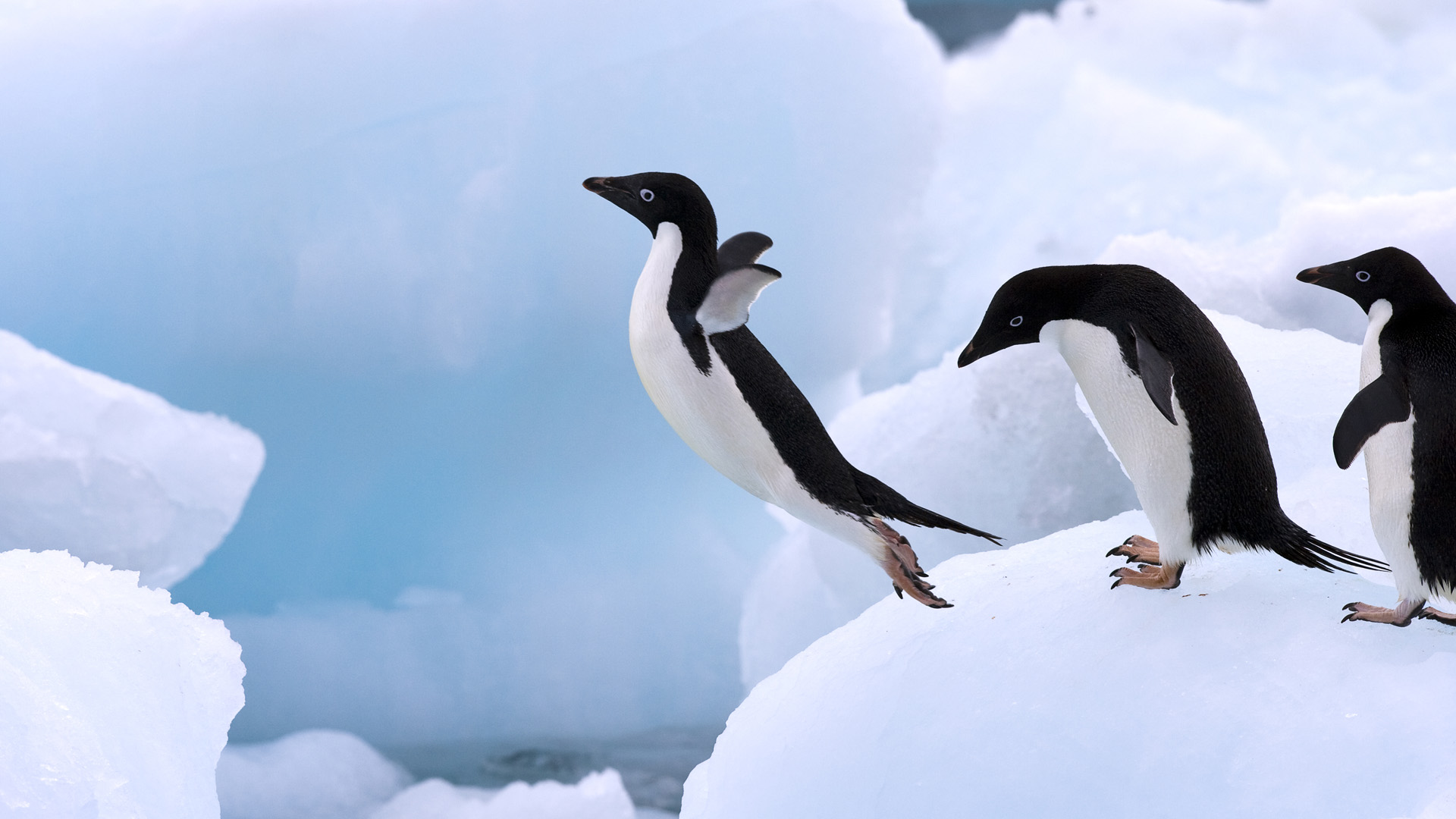Oct 17: Iain Couzin's Scientific Spark, why do deer in Japan bow, and why are some plant nectars bitter?
This month I meet some very polite deer who have a special way of asking for food. I discover why some plant nectars contain poisonous toxins. And in the scientific spark, I talk to Iain Couzin from the Max Planck Department of Collective Behaviour. Iain tells me what sparked his interest in becoming a scientist, and how, if his teachers had had their way, he might have been doing something entirely different.
Download the MP3
Download the MP3
Feeding a sika deer in Nara Park, Japan
Quicklinks:Today I met the sika deer of #Nara #Japan who have learned to bow for treats. Seems to be a #sociallytransmitted #behaviour pic.twitter.com/jTedabe2hW— Dr. Hannah Rowland (@HannahMRowland) October 1, 2017
Variation and social influence of bowing behavior by sika deer (Cervus nippon) in the journal Ethology
Patty Jone' lab webpage at Bowdoin
Patty's paper on the consequences of toxic secondary compounds in nectar for mutualist bees and antagonist butterflies.
Iain Couzin's Collective Behaviour Department
Sept 2015: Kate Umbers, burying beetle parental care, and tasteless monkey thieves
This month I find out that animals should be careful when choosing a mate, picking a partner that matches them in quality, else they might face an early grave! I discover that a mutation in a taste receptor gene has helped macaques in Japan to become thieves. And in the scientific spark, I talk to Kate Umbers from the University of Western Sydney, who works on a variety of topics, mainly related to understanding the mechanisms, functions and evolution of biological colouration. She tells me what sparked her interest in becoming a scientist.
Download the MP3
Quicklinks:
Becky Kilner's Burying Beetle Lab
Burying Beetle paper in eLife
Japanese Macaque taste receptor paper in PLOS One
Kate Umbers' lab page
Download the MP3
A Japanese Macaque munching on fruit (image: https://www.flickr.com/photos/gingiber/)
Becky Kilner's Burying Beetle Lab
Burying Beetle paper in eLife
Japanese Macaque taste receptor paper in PLOS One
Kate Umbers' lab page
Aug 2015: ZSL Scientist Patricia Brekke, polar bear welfare at Yorkshire Wildlife Park, and self-medicating ants
This month I hear how a wildlife park in Yorkshire is providing the perfect retirement setting for an old polar bear. I discover that social insects make trips to natures pharmacy to fight infections. And in the scientific spark, I talk to Patricia Brekke from the Zoological Society of London, who tells me about her research on the endangered new Zealand bird the Hihi, and what inspired her to become a scientist.
Download the MP3
Quicklinks:
Yorkshire Wildlife Park's Project Polar Bear
Ants medicate to fight disease in the journal Evolution
Patricia Brekke from The Institute of Zoology at the Zoological Society of London
Download the MP3
Victor is Yorkshire Wildlife Park's polar bear.
He is one of the biggest polar bears in Europe, weighing 500Kg
Quicklinks:
Yorkshire Wildlife Park's Project Polar Bear
Ants medicate to fight disease in the journal Evolution
Patricia Brekke from The Institute of Zoology at the Zoological Society of London
July 2015: Johan Nilson, sea ducks, and horse facial expressions
This month I find out about sea ducks who enjoy a rather sophisticated fast food diet of mussels. I discover that horses horse around with lots of different facial expressions. And in the scientific spark, I talk to Johan Nilsson from the university of Lund, who researches the physiology and evolutionary ecology of birds.
Download the MP3
Quicklinks:
EquiFACS: The Equine Facial Action Coding System
Elisabeth Varennes' research gate page
Johan Nilsson's research page
Download the MP3
What does this face say?!
EquiFACS: The Equine Facial Action Coding System
Elisabeth Varennes' research gate page
Johan Nilsson's research page
June 2015: Lucy Nash from OUP, Dottybacks change colour to hide from prey, and moths that slow their brains down
In this episode I discover that some species of coral reef fish change colour, and they do this to grab a sneaky meal! I also find out how moths find flowers in the dark. And in the scientific spark I talk
to Lucy Nash, who is commissioning editor for science at Oxford University
Press.
Download the MP3
Quicklinks:
Will Feeney's webpage
Fabio Cortesi's webpage
The dottyback paper in Current Biology
Hovering hawkmoth paper in science
Download the MP3
Copyright © N Justin Marshall/Courtesy of University of Basel
Quicklinks:
Will Feeney's webpage
Fabio Cortesi's webpage
The dottyback paper in Current Biology
Hovering hawkmoth paper in science
May 2015: Marie Herbenstein, deception and disguise of orchid mantis and owl butterflies with @jamohanlon @JohannaMappes and @SebaDeBona
This month I’m joined by special guest James O’Hanlon from the Australian museum in Sydney for a deception and disguise special. James tells me about his PhD research on mantids that trick bees by mimicking flowers - or do they?! And we discuss a new paper showing that butterfly eyepsots might really be mimicking the eyes of a predator’s own predator. In the Scientific spark I talk to Marie Herbenstein, from Macquarie University in Sydney, who tells me that things might have not gone the way they have if she’d chosen a different research project!
Download the MP3
Quicklinks:
James O'Hanlon's webpage
Predator mimicry, not conspicuousness, explains the efficacy of butterfly eyespots
Marie Herbenstein's webpage
Download the MP3
The owl butterfly Photo Credit: 1funny.com
Quicklinks:
James O'Hanlon's webpage
Predator mimicry, not conspicuousness, explains the efficacy of butterfly eyespots
Marie Herbenstein's webpage
April 2015: Tristram Wyatt, the hormonal bond between humans and their dogs, and predator-prey flight and fight behaviour
This month I discover what black field crickets do when predatory lizards get too close. I find out how humans bond with
their canine chums. In the Scientific
spark I talk to Tristram Wyatt, from the University of Oxford, who tells me how
he became fascinated in all things pheromone-y.
Download the MP3
Quicklinks:
Patricio Lago's webpage
Oxytocin-gaze positive loop and the coevolution of human-dog bonds
Tristram Wyatt's webpage
Borrow my doggy-friend - Milo
Quicklinks:
Patricio Lago's webpage
Oxytocin-gaze positive loop and the coevolution of human-dog bonds
Tristram Wyatt's webpage
March 2015: Shaun Killen, animal personality, and guppy food preferences
This month, I discover that a preference for a particular colour of food can be heritable, and I also have a chat with Niels Dingemanse from the Max Planck Institute for Ornithology about how you test animal personality. In the Scientific spark, I talk to Shaun Killen, from the University of Glasgow, who tells me about his inspiration to become a scientist.
Download the MP3
Quicklinks:
Great tits: birds with character
Artificial selection for food colour preferences
Shaun Killen's webpage
Naturally speaking podcast
Download the MP3
Testing Great tit personality. Image from http://www.mpg.de/617557/pressRelease20100209
Quicklinks:
Great tits: birds with character
Artificial selection for food colour preferences
Shaun Killen's webpage
Naturally speaking podcast
Feb 2015: Damien Farine, penguins who can't taste, and shiny tree swallows
This month, I find out that penguins can’t tell the difference between savoury and sweet. I also chat with Sonia Van Wijk from The Université de Sherbrooke in Quebec, Canada, about what makes a male tree swallow attractive to a female who's on the look-out for more than one partner. And in the Scientific spark, I talk to social network whizz Damien Farine, from the University of Oxford, about his path into science.
Download the MP3
Quicklinks:
Sonia Van Wijk's Research Gate page
The penguin taste loss paper in Current Biology
Damien Farine's webpage
Download the MP3
Adelie penguins from http://animalsadda.com/adelie-penguin/
Quicklinks:
Sonia Van Wijk's Research Gate page
The penguin taste loss paper in Current Biology
Damien Farine's webpage
Jan 2015: Niels Dingemanse, animal arithmetic, and smooth billed ani alarm calls
This month, animal arithmetic from a research group in Italy who investigated how chickens order numbers – I put Naked Scientist Graihagh Jackson through her paces. Also in the episode, Leanne Grieves from McMaster University tells me what Smooth-billed anis do in response to different types of predators. And Niels Dingemanse, from the Max Planck Institute for Ornithology tells me about his Scientific Spark.
Download the MP3
Credit: Rosa Rugani, University of Padova
Quicklinks:
Leanne Grieves' paper on Ani in Animal Behaviour
Number-space mapping in the newborn chick resembles humans’ mental number line, in Science
Niels Dingemanse's research page
Download the MP3
Credit: Rosa Rugani, University of Padova
Quicklinks:
Leanne Grieves' paper on Ani in Animal Behaviour
Number-space mapping in the newborn chick resembles humans’ mental number line, in Science
Niels Dingemanse's research page
Dec 2014: Innes Cuthill, tropical lizard leaf mimicry, and bird infrasound
Professor Innes Cuthill from the University of Bristol describes his Scientific Spark. Danielle Klomp from the University of New South Wales, tells me about two populations of gliding lizard that have diverged in gliding membrane colouration to match the colours of their local falling leaves, and that mimicking falling leaves is an adaptation that functions to reduce predation by birds. I also find out how birds heard tornadoes coming and fled one day ahead.
Download the MP3

Falling leaf mimic - Bornean gliding lizard, Draco cornutus
Quicklinks:
Danielle Klomp's paper in Biology Letters
Danielle Klomp's blog
Tornadic Storm Avoidance Behavior in Breeding Songbirds - Current Biology
Innes Cuthill's Camo Lab
Download the MP3

Falling leaf mimic - Bornean gliding lizard, Draco cornutus
Quicklinks:
Danielle Klomp's paper in Biology Letters
Danielle Klomp's blog
Tornadic Storm Avoidance Behavior in Breeding Songbirds - Current Biology
Innes Cuthill's Camo Lab
Nov 2014: The Wiltschkos and magnetic navigation in birds
A sensory ecology bonanza! Professor Wolfgang and Roswita Wiltschko, the husband and wife team who were the first to show that birds have a magnetic sense and use the earth’s magnetic field to orientate, talk about their Scientific Spark. Tanya Kleinhappel tells me how fish sniff out friends from foe. I discover how bats jam their competitor’s sonar.
Download the MP3
Quicklinks:
Tanja Kleinhappel's paper on Diet-mediated social networks in shoaling fish
Corcoran's and Conner's Science paper - Bats jamming bats: Food competition through sonar interference
Wolfgang and Roswitha Wiltschko's research page
Download the MP3
Bats jam each others echolocation calls when competing for prey
Quicklinks:
Tanja Kleinhappel's paper on Diet-mediated social networks in shoaling fish
Corcoran's and Conner's Science paper - Bats jamming bats: Food competition through sonar interference
Wolfgang and Roswitha Wiltschko's research page











